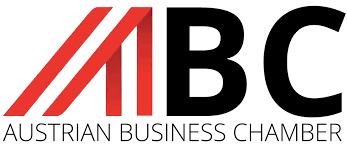The Companies Act: What you need to know
As of 27 December 2024, major amendments to the South African companies act are officially law. With the signing into force of the companies amendment act 16 of 2024 and the companies second amendment act 17 of 2024, companies across the country are now navigating a new legal landscape designed to tighten corporate governance and streamline compliance.
One of the standout changes is the way amendments to a company’s Memorandum of Incorporation (MOI) are handled. These now automatically take effect 10 business days after submission to the Companies and Intellectual Property Commission (CIPC), unless the CIPC endorses or rejects them earlier — making the process more predictable and efficient.In terms of share capital, any shares issued for future consideration must now be held by an independent stakeholder under a formal agreement, replacing the previous reliance on trust arrangements. This offers greater security for both the company and its stakeholders.Furthermore, holding companies can now provide financial assistance to their South African subsidiaries without undergoing a shareholder vote or conducting the solvency and liquidity test, easing intra-group financing.
Share buy-backs have also been tightened. All repurchases now require a special shareholders’ resolution, with limited exceptions, namely, pro rata offers to all shareholders and transactions conducted via stock exchange by listed companies.
For public and state-owned companies, Social and Ethics Committees (SEC) are seeing a governance overhaul. Members must now be elected by shareholders at the AGM, and the majority must be non- executive directors with at least three years of service in that capacity, reinforcing independence and oversight.
Employee Share Ownership Plans (ESOPs) are also being brought into sharper focus. Schemes that involve the purchase of shares now fall under the statutory definition of ESOPs, and qualifying schemes benefit from specific compliance exemptions, provided they meet the outlined conditions.
Director accountability is receiving a notable boost. The window to take legal action against directors for breach of fiduciary duties has been extended to five years, with courts now able to extend this even further where good cause is shown. This also applies to applications to declare directors delinquent, making it easier to hold wrongdoers accountable.
There’s also a key win for landlords involved inbusiness rescue proceedings. Utility and municipal charges owed during the rescue process are now classified as post- commencement finance, giving landlords priority over pre-rescue debt, but stillbelow employee claims.
Notably, a few hot-topic amendments have not yet been implemented. These include the proposed public access to financial statements of certain private companies, and the requirement for remuneration reports and policies to be published by public companies, along with the introduction of the “two-strike” rule. These changes are pending the finalisation of supporting regulations.
In summary, these amendments represent a significant step toward modernising south africa’s corporate environment, aligning it more closely with international standards and enhancing the country’s reputation as a transparent and accountable place to do business.













